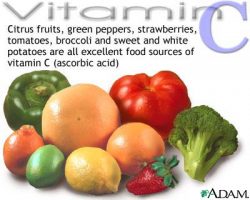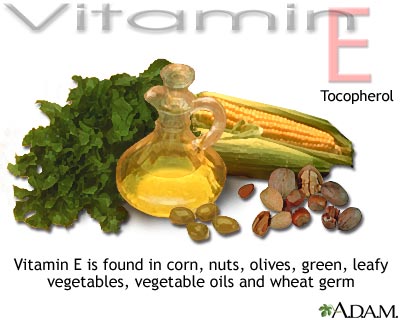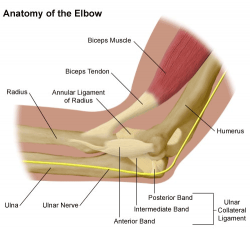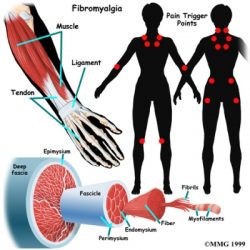 Vitamin C (ascorbic acid) is a water-soluble vitamin, which is necessary in the body to form collagen in bones, cartilage, muscle, and blood vessels and aids in the absorption of iron. Dietary sources of vitamin C include fruits and vegetables, particularly citrus fruits such as oranges. The amount needed varies from person to person but the amount is around 15-75 MG per day with smokers needing an additional 35 mg.
Vitamin C (ascorbic acid) is a water-soluble vitamin, which is necessary in the body to form collagen in bones, cartilage, muscle, and blood vessels and aids in the absorption of iron. Dietary sources of vitamin C include fruits and vegetables, particularly citrus fruits such as oranges. The amount needed varies from person to person but the amount is around 15-75 MG per day with smokers needing an additional 35 mg.
Vitamin C Deficiency
Severe deficiency of vitamin C causes scurvy. Although rare, scurvy includes potentially severe consequences, and can cause sudden death. Patients with scurvy are treated with vitamin C and should be under medical supervision.
Many uses for vitamin C have been proposed, but few have been found to be beneficial in scientific studies. In particular, research in asthma, cancer, and diabetes remains inconclusive, and no benefits have been found in the prevention of cataracts or heart disease.
Prevention of Colds with Vitamin C
The use of this vitamin in the prevention/treatment of the common cold and respiratory infections remains controversial, with ongoing research. For cold prevention , more than 30 clinical trials including over 10,000 participants have examined the effects of taking daily vitamin C.
Overall, no significant reduction in the risk of developing colds has been observed. In people who developed colds while taking vitamin C, no difference in severity of symptoms has been seen overall, although a very small significant reduction in the duration of colds has been reported (approximately 10% in adults and 15% in children).
Notably, a subset of studies in people living in extreme circumstances, including soldiers in sub-arctic exercises, skiers, and marathon runners, have found a significant reduction in the risk of developing a cold by approximately 50%. This area merits additional study and may be of particular interest to elite athletes or military personnel.
For cold treatment , numerous studies have examined the effects of starting vitamin C after the onset of cold symptoms. So far, no significant benefits have been observed.
Vitamin C is an antioxidant. Antioxidants are substances that may protect your cells against the effects of free radicals. Free radicals are molecules produced when your body breaks down food, or by environmental exposures like tobacco smoke and radiation. Vitamin C is important for your skin, bones, and connective tissue. It promotes healing and helps the body absorb iron.
Some people may need extra vitamin C:
- Pregnant/breastfeeding women
- Smokers
- People recovering from surgery
- Burn victims
Vitamin C comes from fruits and vegetables. Good sources include citrus, red and green peppers, tomatoes, broccoli, and greens. Some juices and cereals have added vitamin C.
Amount of Vitamin C in Common Foods
| Red pepper, raw, ½ cup | 95 mg Vitamin C |
| Orange juice, ¾ cup | 93 mg Vitamin C |
| Kiwifruit, 1 medium | 71 mg Vitamin C |
| Orange, 1 medium | 70 mg Vitamin C |
| Grapefruit juice, ¾ cup | 70 mg Vitamin C |
| Green pepper, raw, ½ cup | 60 mg Vitamin C |
| Broccoli, cooked, ½ cup | 51 mg Vitamin C |
| Strawberries, fresh, ½ cup | 49 mg Vitamin C |
| Brussels sprouts, cooked, ½ cup | 48 mg Vitamin C |
| Grapefruit, ½ medium | 39 mg Vitamin C |
| Broccoli, raw, ½ cup | 39 mg Vitamin C |
| Tomato juice, ¾ cup | 33 mg Vitamin C |
| Cantaloupe, ½ cup | 29 mg Vitamin C |
| Cabbage, cooked, ½ cup | 28 mg Vitamin C |
| Cauliflower, raw, ½ cup | 23 mg Vitamin C |
| Potato, baked, 1 medium | 20 mg Vitamin C |
| Tomato, raw, 1 medium | 16 mg Vitamin C |
Vitamin C is one of the most important vitamins for your body. It prevents a lot of diseases, and increases your body’s immune system. You can take this vitamin with or without any food, as it can be found in supplement form or in many different juices. Along with being found in supplement and vitamin form, you can find vitamin C in broccoli, peppers, oranges, lemon juice, mustard greens, cauliflower, papaya, and parsley.
Research in the past has shown that there really aren’t any advantages to taking excessive amounts of this vitamin. Even though you shouldn’t take excessive amounts of vitamin C, you shouldn’t have a deficiency in the vitamin either. The most common signs of a deficiency in vitamin C include swollen gums, an unexplained weakness, and nosebleeds. Deficiency is common these days, with the most common reasons being alcoholism and a poor diet.
Tendons and ligaments throughout your body need vitamin C in order to remain healthy and strong. Depending on your current health situation, it may be in your best interest to take vitamin C supplements along with vitamin E. Together, the combination of the two will work side by side, and enhance their overall impact on your body and your health.
Vitamin C is well known as an antioxidant, protecting your skin from the harmful damage of UV rays. If you skin suffers from radiation damage, vitamin C can actually help your skin to recover and reverse some of the harmful effects. If you include vitamin C in your diet and take it every day, you’ll notice that your skin will benefit. If you use vitamin E and C together, you’ll notice that scars and other harmful defects on your skin will start to heal as well.
You can find vitamin C in many fruits and vegetables, although oranges will give you the most amounts. Orange juice is a great way to get your daily dose of vitamin C, as all you need to do is drink a few glasses of it a day. Even if you drink a glass of orange juice in the morning with your breakfast then eat a few oranges during the day, you’ll get more than enough vitamin C.
If you want to get more vitamin C in your diet, you can use vitamin supplements. When you look for supplements at the store, you should read the labels and see how much vitamin C is in the supplement, and how it works. You should avoid time released supplements of vitamin C, as they haven’t been proven to work as well yet. As long as you monitor your intake of vitamin C and use it on a daily basis, you’ll find that your health and immune system will be better than ever.











Very good article on the benefits of vitamin C. I have always used it for cold prevention and it really does work as this is one of the many benefits that it provides to the human body. I have far fewer colds than a lot of other people that I know and I firmly believe that the vitamin C is responsible for this.